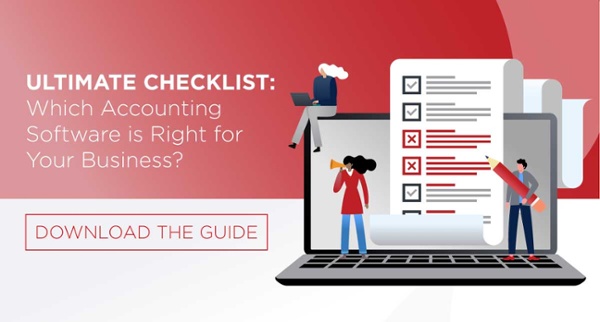A viable accounting software in the cloud

I’m amazed every day with all the new technology that is coming out. Some okay, and others amazing. But if your business is growing and you’re looking for a viable accounting application, please consider Gravity Software® (Gravity). Gravity provides best-in-breed cloud accounting tools that brings productivity from every direction! These tools deliver high value, intuitive user navigation and adaptation, with feature rich capabilities.
Gravity’s features are designed for companies that have outgrown their entry level accounting solutions like QuickBooks. You’ll appreciate Gravity’s robust capabilities like:
-
Multi-Location Inventory Tracking
-
Multi-Company Consolidation Capabilities
-
Automated Purchase Order System
-
Robust Security by Screen, Field, Record, Process and Company.
Gravity Software: The next step accounting solution for growing SMBs
Invest in a cloud-based solution
While the benefits are many, we’ve highlighted some of the main reasons why investing in a cloud-based solution like Gravity is good for your growing business.
1. Gravity's Accounting Software is Easy
-
-
Easy Set-Up: You don’t have to concede long periods of downtime, deal with hardware or get a second degree in programming to become fully operational with Gravity’s cloud solution.
-
Easy (and intuitive) Navigation: A cloud application like Gravity prides itself on its users’ intuitive interface and easy navigation capabilities.
-
2. Low Overhead and Maintenance
You’ll find your business actually saving money and enjoying a reduced overhead because you can waive goodbye to those cumbersome servers taking up space in your utility closet.
3. Scalability
Gravity’s cloud accounting capabilities are designed to grow with your business, and you can add more users when you’re ready. If your foresight reveals a big expansion and new locations and entities, complete with new staff, you have the ability to scale up within hours. Or you can scale down when needed.
4. Robust Reporting
Get rid of all those spreadsheets and hours of manipulating information. Gravity’s Advanced Financial Reporting tools allow you to easily analyze, consolidate and present your company’s financial statements without using Excel.
5. Data Accessibility, Streamlined and Secure
Ensure your data integrity with Gravity’s Full Role Based Security. Enjoy peace of mind knowing your company data is safe and secure. You control who has access to what. For instance, an accounting team member may have access to putting invoices in a system, but may not have access to printing checks. Gravity provides security down to the user and field level.
Gravity is built on the Microsoft Power Platform (aka Dynamics 365). A platform that hosts over five million users worldwide and has become one of the most reliable and scalable platforms available today.
FAQ's About Cloud Accounting Software:
What is cloud accounting software?
Cloud accounting software is an online platform that allows small business owners to manage their financial data, such as invoicing, payments, expenses, and payroll, over the internet. Unlike traditional accounting software, which is often installed on specific devices or local servers, cloud-based accounting can be accessed from any device with an internet connection, offering greater flexibility and convenience for multiple users.
How does cloud accounting software differ from traditional accounting software?
The main difference is accessibility. Cloud accounting software operates online, enabling access from anywhere, while traditional accounting software is typically installed on a specific computer or server, limiting access to that location. Cloud accounting also provides users access to automatic software updates and data backups, whereas traditional software often requires manual updates, data entry and maintenance.
Is cloud accounting software secure compared to traditional accounting software?
Yes, cloud accounting software generally includes advanced security protocols, such as encryption and multi-factor authentication, to safeguard financial data. While traditional accounting can also be secure, it often relies on local security measures and manual backups, which may be vulnerable to physical threats like theft or damage. Cloud accounting providers handle these aspects with dedicated security teams.
What are the cost differences between cloud and traditional accounting software?
Cloud accounting software usually operates on a subscription basis, offering scalable plans that can be adjusted as business needs change, which can make it more cost-effective, especially for small businesses. Traditional accounting often involves a higher initial investment for a one-time license or installation, and additional costs for upgrades and support over time.
Does cloud accounting software require less IT support than traditional accounting software?
Generally, yes. Cloud accounting software reduces the need for in-house IT support because the provider manages software updates, security, and maintenance. Traditional accounting software, on the other hand, may require IT support for updates, troubleshooting, and hardware compatibility, adding to overall management costs.
Can cloud accounting software integrate with other business tools better than traditional accounting software?
Cloud accounting software is usually designed with easy integrations in mind, allowing it to connect with various business tools like CRM systems, payroll services, and inventory management platforms. While traditional accounting software may support integrations, these are often more complex to set up and may be limited to specific versions or require manual intervention.
Is cloud accounting software suitable for all types of businesses, or is traditional accounting software better for certain industries?
Cloud accounting software is suitable for a wide range of businesses due to its flexibility and scalability. However, businesses that have highly specialized accounting needs or work in industries with strict regulatory requirements may still prefer traditional accounting software if it offers customized solutions that better meet specific needs.
How is data backed up in cloud accounting software compared to traditional accounting software?
Cloud accounting software providers typically back up data automatically on secure servers, ensuring it remains safe in the event of hardware failures. Traditional accounting software, on the other hand, requires users to create manual backups on local drives or external storage, which can be vulnerable to physical damage or data loss if not done regularly.
Gravity is structured to help manage and efficiently operate your growing business. By implementing a viable cloud application like Gravity, you’ll reduce those dreaded overhead costs while increasing operational efficiencies across the board. What a way to save and grow at the same time! Learn more and schedule your online demo today. Just say GO!
Gravity Software
Better. Smarter. Accounting.


